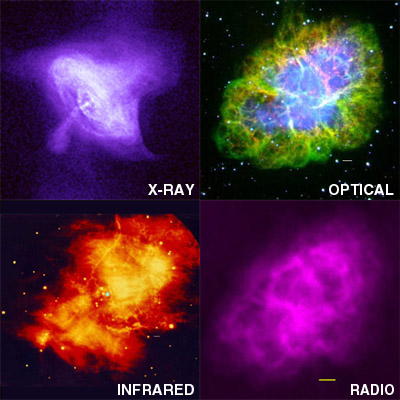What's An Image?


You may think that an image is just the
collection of light from an object, but this is far from the case. You
will learn that by looking at WHEN the light arrives at the telescope
and with WHAT ENERGY, a fantastic amount can be learned about many
objects in the sky; not only stars, but galaxies, and bizarre objects
like white dwarves, quasars, and supernovae. In the
following pages, you will see what we can learn by looking at X-rays
using NASA's Chandra X-ray Observatory. You will be using real
data that scientists actually use when they investigate the nature of
our universe. Chandra orbits the Earth and captures pictures like
the one in the top left above.

To begin, you need to install some FREE
software that will allow you to use the Chandra data. Not only is
this software powerful, it is a LOT of fun to use. So,
click on the Chandra image above and follow the instructions on the
Chandra home page to install the software and go through the
tutorial. Return here to start your journey of discovery about
the x-ray universe. The first thing we want to explore is where these
objects are in space, and how we can find them in the
sky. We don't want to get lost in space.... To find our way around, we
will see how your knowledge of maps on the Earh can be applied to the
sky Click HERE
to begin!